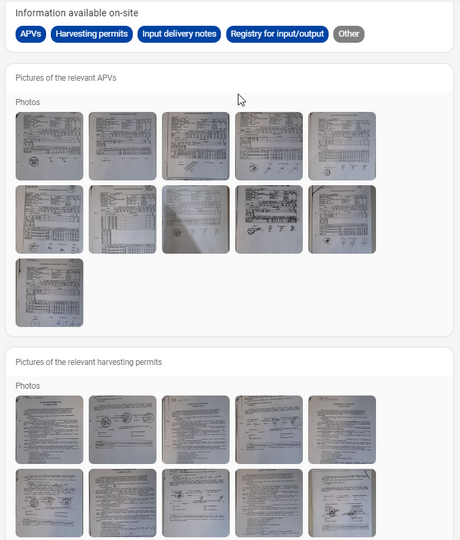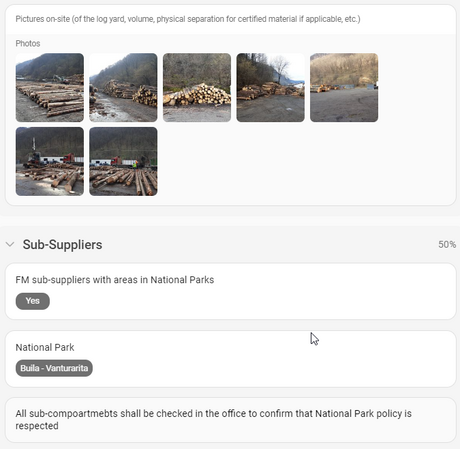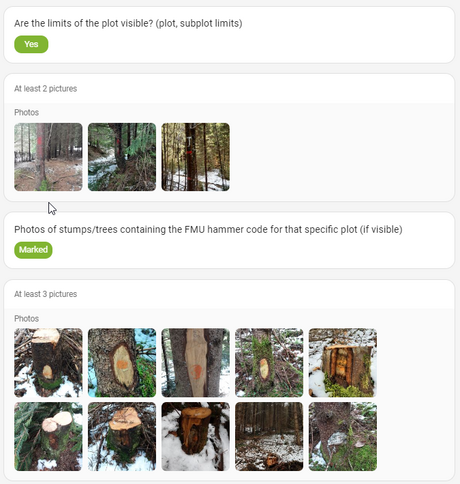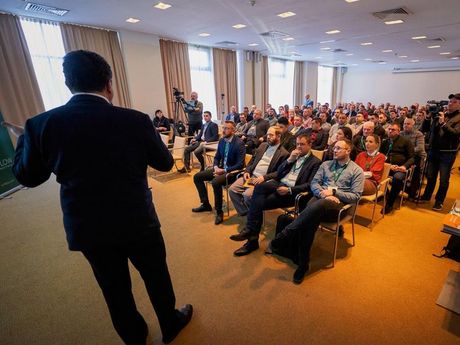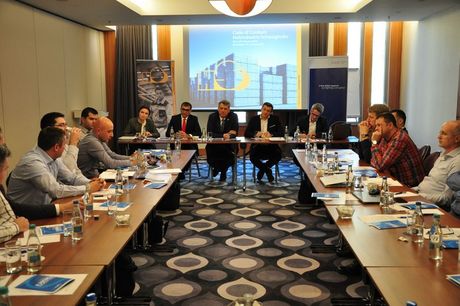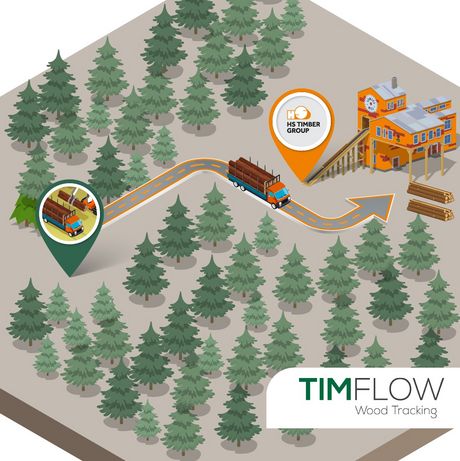HS Timber Group’s Due Diligence system components are constantly evolving
Interview with Adrian Lucan, SCCC Manager for Romania
It is important for us to make sure that the timber we buy at HS Timber Group comes from sustainable sources and traceability of its legal origin is not just an obligation, but a matter we take very seriously.
Our experts, together with representatives of various specialized organisations and other stakeholders, are constantly evaluating our standards and actions in regards to environmental protection and developing new procedures for a solid security architecture.
Adrian Lucan, the manager of the Supply Chain Control and Certification Department in Romania, explains in detail what EUTR compliance entails, what HS Timber Group's Due Diligence system includes and what are the latest developments:
Let's start from the beginning. Broadly, what does EUTR foresee?
The European Timber Trade Regulation (EUTR) prohibits the placing on the EU market of illegally harvested wood and timber products. EUTR divides those who do business with wood or wooden products into two categories: operators and traders. Each category has separate obligations.
On the one hand, the operators, those who first introduce timber or wooden products on the EU market, must implement a risk management system, or due diligence system. On the other hand, the traders - those who sell or buy wood or wooden materials already introduced on the EU market - must keep records of the suppliers and of the clients, in order to prove the materials’ traceability, if necessary.
From the point of view of EUTR, HS Timber Group’s companies are an operator, regarding a volume of about 10% of the purchased sawlogs from Romania.
What should EUTR operators do?
Operators must implement a Due Diligence system, which covers the following fundamental issues:
- Access to product information and supply chain. This includes the description of the product, the quantity, the wood species, the country or - where applicable - the sub-national harvesting area, the indicators on compliance with the legislation and the names and addresses of the buyers and suppliers.
- Risk assessment of illegal introduction of timber into the supply chain.
- Reducing any identified risks, for example by requesting additional documentation or checking the supplier by carrying out on-the-spot audits.
Regular assessments of the Due Diligence system and operator’s performance.
What is HS Timber Group doing as an operator?
At HS Timber Group, we apply this DDS system not only for the 10% volume for which we are considered the operator, but in the case of all timber deliveries.
We do this because, through the action plan we have undertaken for a sustainable timber industry, we aim to support the fight against illegal logging and ensure transparency in the supply chain.
The complexity of our DDS system goes beyond the laws and regulations in force and I will tell you why:
- The legal department checks whether the companies or administrators with whom we collaborate, or with whom we are to collaborate, have been convicted of illegal logging or corruption. If so, we suspend any commercial ties or intentions.
- We carry out field audits, both at suppliers and in Forest Management Units and we also focus on health and safety norms.
- We monitor the press and verify information regarding possible non-compliant or illegal activities. If the situation requires, we do additional field audits.
- We organize public consultations and ask for the opinion of stakeholders, with regards to the forest areas from which we purchase wood.
- Since April 2017, we have implemented Timflow, our own GPS-based wood transport monitoring system. All trucks that deliver logs from Romania to HS Timber Group’s factories must use this system. A GPS device is installed on the truck. With its help, we can see the detailed and updated route of the truck every 30 seconds.
The Timflow system integrates photos of the truck load, taken at the place of loading, from all angles of the truck: front, rear of the truck, rear of the trailer, both sides and all this, together with the route, is made available to the interested public, 24 hours after transport, on www.timflow.com, for a period of 12 months.
A feature of the system that helps us a lot to respect our commitment not to process wood from national parks, is that Timflow automatically generates alerts where there is the slightest suspicion of delivery from both national parks and other protection areas, such as UNESCO or virgin forests.
After four years of implementation and over 123,000 transport registered in Timflow, we are glad that we can ensure a secure and transparent supply chain and that we can contribute to limiting the phenomenon of illegal logging in Romania.
- To act prudently, the staff of HS Timber Group is continuously trained by external experts on issues of high importance, such as EUTR, PEFC, the Clean Act of Japan, the US Lacey Act and other various national and international laws and regulations.
- We carry out audits of suppliers and of forest owners from abroad through third parties. We ensure the legality of each delivery by examining in detail all documents. We perform additional compliance checks, including the receipt of log deliveries and any non-compliant delivery is rejected.
The Due Diligence system of HS Timber Group has been checked so far by the state authorities 20 times and all EUTR verifications have confirmed the compliance with Due Diligence obligations.
An expert opinion issued by the independent consulting firm SGS also confirms conformity of HS Timber Group’s security system to EUTR, especially for the supplier countries of Ukraine and Belarus.
In the past, independent expert organisations such as INDUFOR from Finland and KPMG Canada also carefully examined the company’s security systems, confirming the efficiency of the steps taken and helping to advance a continuous improvement process at the same time.
What are the latest developments in DDS at HS Timber Group?
In the first part of 2020, as part of the DDS system, we implemented - together with an external partner – the DDS Hub, an internal platform subject to continuous development that integrates data about the timber suppliers of HS Timber Group related to all factories.
Both the EUTR and all certification systems foresee that one must have a DDS system. Therefore, we did not limit ourselves to a simple document, but we created a complex database, interconnected with other internal management software, to which several departments such as SCCC, purchase, reception and legal have access.
The DDS Hub makes our lives easier. To give you just a few examples, the system includes the status of our commercial partners (whether they are suspended or not), contracts, information on the origin of wood, sub-suppliers, direct links if the partner is certified, when the last audit was performed, corrective actions that are taken following audits. The system generates automatic notifications for open and unresolved situations, or if a new supplier appears or non-compliances occur.
In the case of an audit, we can automatically generate various reports and records, and generate automatic notifications for better management of relations with suppliers, and through the mobile application, suppliers send us directly data about the origin of wood.
The DDS Hub is constantly evolving and I can say that the role of digitalization and innovation is essential when it comes to strengthening a security architecture that ensures the traceability of wood.

